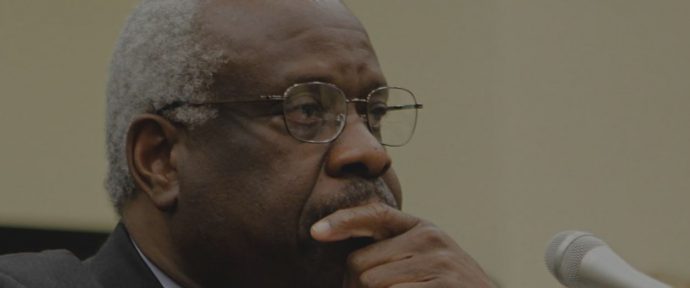A lot of conservative lawyers who were mis-taught and thus believe in judicial supremacy will not like Justice Thomas’s credo — here is Myron Magnet:
The Constitution, not precedent, is the law of the land.
One of the most striking aspects of Monday’s Supreme Court decision in Gamblev. United States was Clarence Thomas’s eloquent summary of the core precept of his judicial philosophy: that stare decisis—the venerable doctrine that courts should respect precedent—deserves but a minor place in Supreme Court jurisprudence. His 17-page concurrence in a case concerning double jeopardy, really a stand-alone essay, emphasizes that, in America’s system of government, the “Constitution, federal statutes, and treaties are the law.” That’s why justices and other governmental officers take an oath to “preserve, protect, and defend the Constitution of the United States”—not to safeguard judicial precedents. “That the Constitution outranks other sources of law is inherent in its nature,” he writes. The job of a Supreme Court justice, therefore, “is modest: We interpret and apply written law to the facts of particular cases.”
Unlike the unwritten English constitution that governed the American colonists for 150 years before the 1787 Constitutional Convention rejected it, U.S. law does not “evolve” by the slow accumulation of judicial precedents. What the law schools teach as “constitutional law” is merely a collection of opinions valid only insofar as they correctly construe the written texts of the Constitution and statutes. Moreover, as Thomas explains in Gamble, even English common law judges, who saw their job as “identifying and applying objective principles of law—discerned from natural reason, custom, and other external sources—to particular cases,” recognized the possibility of error, making it their duty, as Thomas quotes James Kent, a celebrated jurist of the early republic, to “‘examin[e] without fear, and revis[e] without reluctance,’ any ‘hasty and crude decisions,’ rather than leaving ‘the character and harmony of the system destroyed by the perpetuity of error.’” English jurist William Blackstone had put it even more strongly in his standard Founding-era law text, Thomas observes. “When a ‘former decision is manifestly absurd or unjust’ or fails to conform to reason,” Blackstone pronounced, “it is not simply ‘bad law,’ but ‘not law’ at all.”
Read more: City Journal
Image credit: www.city-journal.org.

